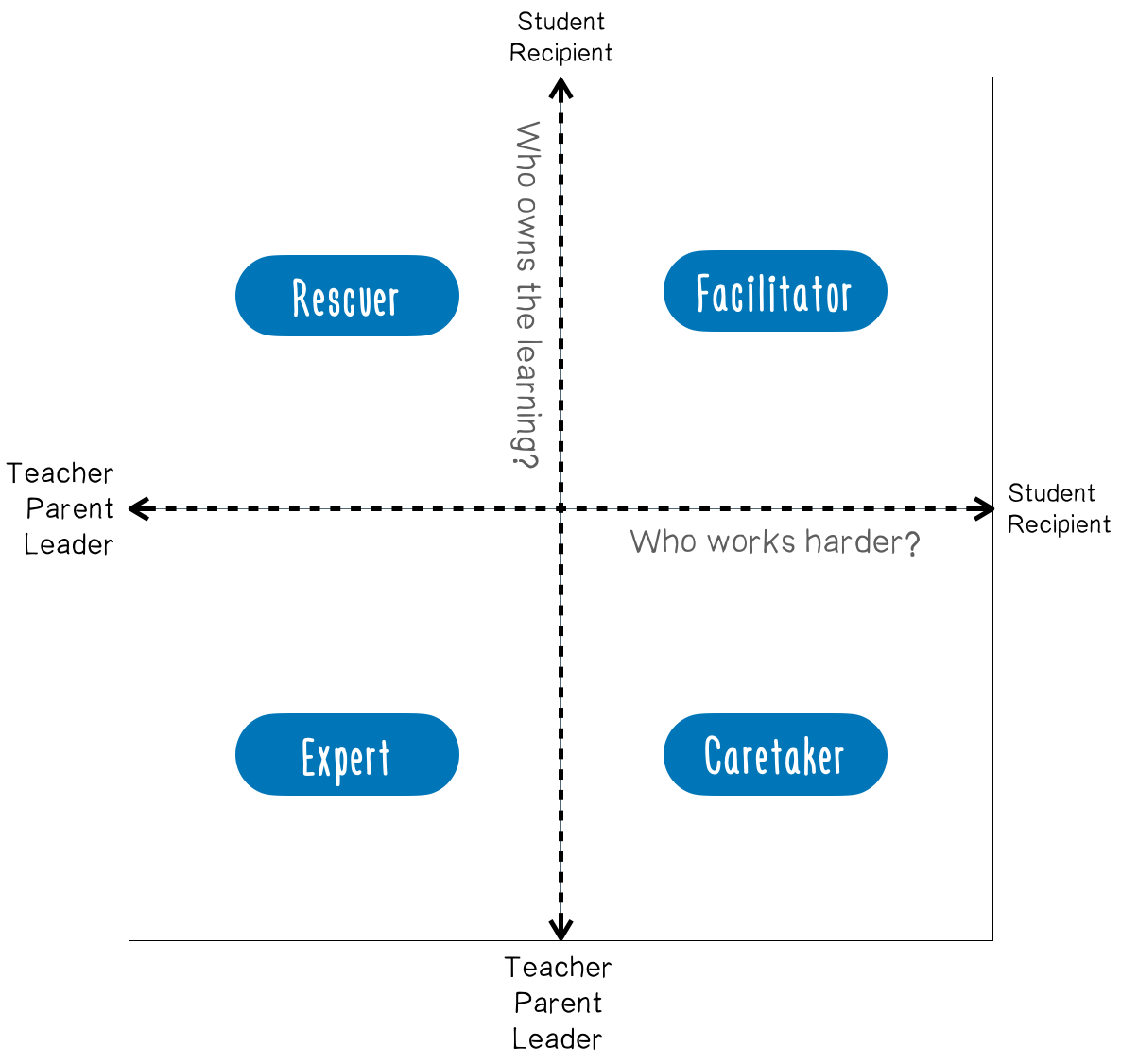Two key questions that define learning
Alan November, education technology guru, said a number of years ago:
“I think this is an interesting time of trying to figure out what are the questions…”
He was not, of course, referring to COVID19, yet this quote seems even more relevant in today’s context. This statement helped him position two key questions for education:
Who owns the learning? [Teacher or student?]
Who works harder? [Teacher or student?]
We now know, thanks to both research in education and neuroscience, that agency and effort are huge determinants of learning that lasts.
These two questions have been floating in my mind since, back in 2010, I heard Alan at a conference, for they are relevant to any learning engagement, be it teacher-student, parent-child or leader-team. Recently I played with the two questions further by juxtaposing them on a 2X2 matrix.
Some things emerge for me with this model:
Clearly, education’s big move in the past decades has been from Expert (content) to Facilitator (conversation)
COVID19 has given us a load of Experts (via webinars) but not many Facilitators
Stepping away from ‘personas’ to roles, good learning leaders spend time in each quadrant, according to learner needs. Just like balanced nutrition and certain foods, there are some you should get more of, others that should be minimised.
One way to shift quadrants during a learning engagement is to present some content (Expert), then give the leaners a protocol for making meaning of the content, such as Connect-Extend-Challenge (Facilitator). Wandering the room during discussion, listening for learning and road blocks (Caretaker), you can easily focus in on any learners with misconceptions or problems (Rescuer).
The advent of Zoom during COVID 19 has tended to push pedagogy/andragogy back towards the Expert (content delivery) quadrant.
What are your thoughts?
I you are a trainer, what quadrant role do you spend your time in?
This model is still developing, more thinking on this to come.

